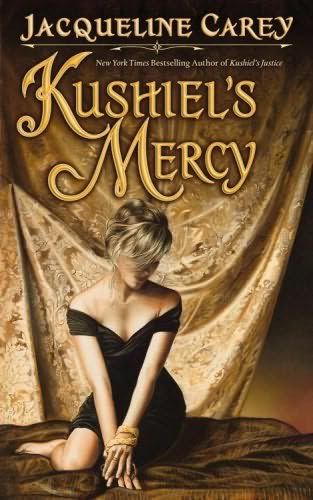
I just finished Kushiel's Mercy, the sixth (and I think final) book in Jacqueline Carey's Kushiel's Legacy series, and I was blown away. I always thought Imriel was a more interesting character than Phedre, and this...this makes Phedre's third story look TAME. Carey rips her world to pieces and slowly puts it back together, in a way that is continually surprising and ultimately satsifying. Definitely a must for those fans of the series.
Also recently I read the novel Kartography, by Kamila Shamsie. This novel is beautiful, complicated, frustrating.... My initial impression was that I liked it quite a bit. On reflection, I can say with some confidence that the overall impression the book leaves you with is one of beauty. It's a lovely book, interweaving the stories of a family during 1971 West Pakistan, during the conflict with East Pakistan that resulted in the formation of Bangladesh, and Karachi in the 1990s (in West Pakistan). Shamsie creates two intertwining families that weave in and out of each other as the parents try to deal with their choices in 1971 and the children try to understand why it affectes them now.
While Raheen and Karim, the offspring in question, are interesting to observe, the real meat of the story is in the events of 1971, when their parents engaged in what they call "the finace swap" - Raheen's father and Karim's mother were originally engaged to each other, while Raheen's mother and Karim's father were engaged, and then in the unraveling you come to understand why they swapped. This was the story that caught my attention, and I could have used more time devoted to it - not that events were lacking, but...the modern day stuff just wasn't as hanging-by-a-thread fascinating.
Raheen is a frustrating narrator because of how much she doubts herself and the people around her, how stubborn she is, how obtuse....Raheen is a very, very realistic narrator, and even though there were times I didn't like her necessarily, I always cared about her.
It's a bleeding heart novel, and most assuredly a romance, but neither of those are bad things. I recommend it, purely for the knot it offers the reader to untangle.

